We use cookies to make your experience better.
To comply with the new e-Privacy directive, you agree to the privacy policy and our use of cookies.
AMD EPYC 7232P processor 3.1 GHz 32 MB L3
SKU
100-000000081
| Processor socket | Socket SP3 |
|---|---|
| Box | No |
| Processor cores | 8 |
| Processor family | AMD EPYC |
| SKU | 100-000000081 |
| EAN | 5054444258249 |
| Manufacturer | AMD |
| Availability | In Stock |
| Product Family | EPYC |
2nd Gen AMD EPYC are a new breed of server processors which sets a higher standard for data centers.
Groundbreaking design makes AMD EPYC #1 in performance across industry standard benchmarks, holding 80 world records to date. Performance you can count on to propel your modern data center workloads. ’Hardened at the Core’ protection helps defend against side-channel attacks and EPYC's secure encrypted virtualization features help keep your data safe. The processor’s agility helps you manage new deployments and changing workloads, with the system resources you need, simply and cost-effectively. AMD is the server processor company you can count on for innovation and leadership today and into the future.
Performance Leadership
Virtually everything runs better on AMD EPYC 7002 Series powered servers. Whether you run enterprise applications, virtualized and cloud computing environments, software-defined infrastructure, high-performance computing, or data analytic applications. EPYC processor-based systems are #1 on industry benchmarks, including those measuring integer, floating-point, virtualization, database, and HPC performance. AMD EPYC 7742 processor has set new world records that establish AMD as THE performance leader.
The secret is under the hood
AMD Infinity Architecture is a hybrid multi-die architecture that is reaching new heights with AMD EPYC 7002 Series processors. AMD Infinity Architecture now decouples two streams: eight dies for the processor cores, and one I/O die that supports security and communication outside the processor. With the agility to deliver the leading-edge process technology for CPU cores while letting I/O circuitry develop at its own rate, new capabilities can be brought to market faster with EPYC because its die design is not monolithic. This has allowed EPYC to race to leadership in the market and continue to innovate in the future.
Forged from the finest silicon
AMD is first to market an x86 processor based on 7nm technology. With double the core density and optimizations that improve instructions per cycle, the result is 4x the Floating-Point performance of 1st Gen AMD EPYC.
7nm process technology also brings energy efficiency. 2nd Gen AMD EPYC can provide the same performance at half the power consumption.
EPYC by the numbers
AMD EPYC has been engineered for data centers that rely on CPU performance. From oil and gas exploration, to in-memory databases, to big data analytics to production rendering to standard data center applications, highly parallel workloads have more cores to work with. AMD EPYC 7002 generation processors scale from 8 to 64 cores (16 to 128 threads per socket). No other x86 vendor today enables such a core density in the market.
Be top of the security chain
AMD EPYC is ‘Hardened at the Core’ with advanced security features. It is the first server CPU with an integrated and dedicated security processor providing the foundation for Secure Boot, Secure Memory Encryption (SME) and Secure Encrypted Virtualization (SEV). So you can worry less about data risk and focus more on running your business.
Enabling software boot without corruption
The AMD EPYC processor secure root of trust is designed to validate the initial BIOS software boot without corruption. In virtualized environments, you can cryptographically check that your entire software stack is booted without corruption on a cloud server or services you choose.
Restrict internal vulnerabilities
With encrypted memory, attacks on the integrity of main memory (such as cold-boot attacks) are inhibited because any data obtained is encrypted. High-performance encryption engines integrated into the memory channels help speed performance. All of this is accomplished without modifications to your application software.
Safeguarding virtual and cloud infrastructure
2nd Gen EPYC helps safeguard privacy and integrity by encrypting each virtual machine with one of up to 509 unique encryption keys known only to the processor. This aids in protecting confidentiality of your data even if a malicious virtual machine finds a way into your virtual machine’s memory, or a compromised hypervisor reaches into a guest virtual machine.
All-in feature set
AMD takes pride in having transparent relationships with its partners and customers. This means having an “all-in” feature set that isn’t contrived to extract higher prices from customers.
With AMD EPYC, you have the agility to choose the processor your application requires without worrying about whether an important feature or capability is included. Whatever the number of cores you choose, you’ll have the I/O, memory, and memory bandwidth to accomplish what you need.
First-to-market PCIe 4.0 readiness
AMD EPYC is the first and only current x86-architecture server processor supporting PCIe 4.06. PCIe 4.0 delivers double the I/O performance over PCIe 3.0. You can use 128 lanes of I/O to double the network bandwidth that ties together HPC clusters and satisfies voracious needs for east-west bandwidth. For other application needs and in virtualized environments, you can connect with higher speed to GPU accelerators, NVMe drives, and you can even use integrated disk controllers to access spinning disks without the typical bottleneck of a PCIe RAID controller.
X86 compatibility
You can have confidence in AMD EPYC 7002 generation processors because virtually all software will just work. We work with the open source community and major software vendors to help ensure your applications and enabling software will work exceptionally well with EPYC. The broad ecosystem of open tools and libraries are more reasons why top cloud providers such as AWS, Microsoft Azure, Oracle Cloud are providing services to customers based on AMD EPYC processors.
1-Socket EPYC server advantage
Traditional CPUs typically must scale up to a 2-socket server to overcome an imbalance of resources. With AMD EPYC, 1-socket servers satisfy most of your workload needs, helping you increase density and reduce capital, power, and cooling expenses.
With a 1-socket EPYC server, you can cut licensing costs up to 50% with ‘per-socket software’ such as VMware vSphere or vSAN.
Groundbreaking design makes AMD EPYC #1 in performance across industry standard benchmarks, holding 80 world records to date. Performance you can count on to propel your modern data center workloads. ’Hardened at the Core’ protection helps defend against side-channel attacks and EPYC's secure encrypted virtualization features help keep your data safe. The processor’s agility helps you manage new deployments and changing workloads, with the system resources you need, simply and cost-effectively. AMD is the server processor company you can count on for innovation and leadership today and into the future.
Performance Leadership
Virtually everything runs better on AMD EPYC 7002 Series powered servers. Whether you run enterprise applications, virtualized and cloud computing environments, software-defined infrastructure, high-performance computing, or data analytic applications. EPYC processor-based systems are #1 on industry benchmarks, including those measuring integer, floating-point, virtualization, database, and HPC performance. AMD EPYC 7742 processor has set new world records that establish AMD as THE performance leader.
The secret is under the hood
AMD Infinity Architecture is a hybrid multi-die architecture that is reaching new heights with AMD EPYC 7002 Series processors. AMD Infinity Architecture now decouples two streams: eight dies for the processor cores, and one I/O die that supports security and communication outside the processor. With the agility to deliver the leading-edge process technology for CPU cores while letting I/O circuitry develop at its own rate, new capabilities can be brought to market faster with EPYC because its die design is not monolithic. This has allowed EPYC to race to leadership in the market and continue to innovate in the future.
Forged from the finest silicon
AMD is first to market an x86 processor based on 7nm technology. With double the core density and optimizations that improve instructions per cycle, the result is 4x the Floating-Point performance of 1st Gen AMD EPYC.
7nm process technology also brings energy efficiency. 2nd Gen AMD EPYC can provide the same performance at half the power consumption.
EPYC by the numbers
AMD EPYC has been engineered for data centers that rely on CPU performance. From oil and gas exploration, to in-memory databases, to big data analytics to production rendering to standard data center applications, highly parallel workloads have more cores to work with. AMD EPYC 7002 generation processors scale from 8 to 64 cores (16 to 128 threads per socket). No other x86 vendor today enables such a core density in the market.
Be top of the security chain
AMD EPYC is ‘Hardened at the Core’ with advanced security features. It is the first server CPU with an integrated and dedicated security processor providing the foundation for Secure Boot, Secure Memory Encryption (SME) and Secure Encrypted Virtualization (SEV). So you can worry less about data risk and focus more on running your business.
Enabling software boot without corruption
The AMD EPYC processor secure root of trust is designed to validate the initial BIOS software boot without corruption. In virtualized environments, you can cryptographically check that your entire software stack is booted without corruption on a cloud server or services you choose.
Restrict internal vulnerabilities
With encrypted memory, attacks on the integrity of main memory (such as cold-boot attacks) are inhibited because any data obtained is encrypted. High-performance encryption engines integrated into the memory channels help speed performance. All of this is accomplished without modifications to your application software.
Safeguarding virtual and cloud infrastructure
2nd Gen EPYC helps safeguard privacy and integrity by encrypting each virtual machine with one of up to 509 unique encryption keys known only to the processor. This aids in protecting confidentiality of your data even if a malicious virtual machine finds a way into your virtual machine’s memory, or a compromised hypervisor reaches into a guest virtual machine.
All-in feature set
AMD takes pride in having transparent relationships with its partners and customers. This means having an “all-in” feature set that isn’t contrived to extract higher prices from customers.
With AMD EPYC, you have the agility to choose the processor your application requires without worrying about whether an important feature or capability is included. Whatever the number of cores you choose, you’ll have the I/O, memory, and memory bandwidth to accomplish what you need.
First-to-market PCIe 4.0 readiness
AMD EPYC is the first and only current x86-architecture server processor supporting PCIe 4.06. PCIe 4.0 delivers double the I/O performance over PCIe 3.0. You can use 128 lanes of I/O to double the network bandwidth that ties together HPC clusters and satisfies voracious needs for east-west bandwidth. For other application needs and in virtualized environments, you can connect with higher speed to GPU accelerators, NVMe drives, and you can even use integrated disk controllers to access spinning disks without the typical bottleneck of a PCIe RAID controller.
X86 compatibility
You can have confidence in AMD EPYC 7002 generation processors because virtually all software will just work. We work with the open source community and major software vendors to help ensure your applications and enabling software will work exceptionally well with EPYC. The broad ecosystem of open tools and libraries are more reasons why top cloud providers such as AWS, Microsoft Azure, Oracle Cloud are providing services to customers based on AMD EPYC processors.
1-Socket EPYC server advantage
Traditional CPUs typically must scale up to a 2-socket server to overcome an imbalance of resources. With AMD EPYC, 1-socket servers satisfy most of your workload needs, helping you increase density and reduce capital, power, and cooling expenses.
With a 1-socket EPYC server, you can cut licensing costs up to 50% with ‘per-socket software’ such as VMware vSphere or vSAN.
| Processor | |
|---|---|
| Processor base frequency | 3.1 GHz |
| Processor manufacturer | AMD |
| Cooler included | No |
| Thermal Design Power (TDP) | 120 W |
| Processor cache | 32 MB |
| Processor model | 7232P |
| Processor threads | 16 |
| Processor operating modes | 32-bit |
| Processor boost frequency | 3.2 GHz |
| Component for | Server/workstation |
| Processor lithography | 7 nm |
| Processor family | AMD EPYC |
| Processor cores | 8 |
| Box | No |
| Processor socket | Socket SP3 |
| Processor cache type | L3 |
| Memory | |
| Memory types supported by processor | DDR4-SDRAM |
| Memory clock speeds supported by processor | 3200 MHz |
| Memory channels | Octa-channel |
| Memory bandwidth (max) | 85.3 GB/s |
| Graphics | |
| Discrete graphics card | No |
| On-board graphics card model | Not available |
| On-board graphics card | No |
| Discrete graphics card model | Not available |
| Power | |
|---|---|
| Thermal Design Power (TDP) | 120 W |
| Technical details | |
| PCI Express slots version | 4.0 |
| Thermal Design Power (TDP) | 120 W |
| Market segment | Server |
| Processor cache type | L3 |
| Features | |
| Maximum number of PCI Express lanes | 128 |
| Thermal Design Power (TDP) | 120 W |
| PCI Express slots version | 4.0 |
| Market segment | Server |
| Harmonized System (HS) code | 85423119 |
| Logistics data | |
| Harmonized System (HS) code | 85423119 |
You may also be interested in
| Product |
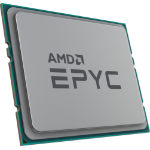
Popular
AMD EPYC 7232P processor 3.1 GHz 32 MB...
Login for pricing
|
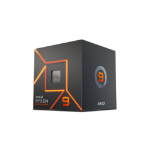 AMD Ryzen 9 7900 processor 3.7 GHz 64...
Login for pricing
AMD Ryzen 9 7900 processor 3.7 GHz 64...
Login for pricing
|
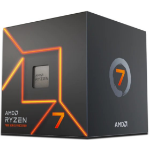
Recommended
AMD Ryzen 7 7700 processor 3.8 GHz 32...
Login for pricing
|
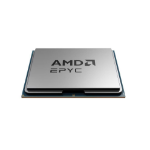
New
AMD EPYC 7303P processor 2.4 GHz 64 MB...
Login for pricing
|
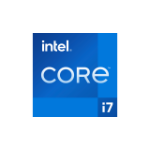
Hot Product
Intel Core i7-14700K processor 33 MB S...
Login for pricing
|
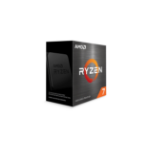
Bestseller
AMD Ryzen 7 5700X3D processor 3 GHz 96...
Login for pricing
|
|---|---|---|---|---|---|---|
| SKU |
100-000000081
|
100-100000590BOX
|
100-100000592BOX
|
100-000001286
|
BX8071514700K
|
100-100001503WOF
|
| Description |
2nd Gen AMD EPYC are a new breed of server processors which sets a higher standard for data centers.
Groundbreaking design makes AMD EPYC #1 in performance across industry standard benchmarks, holding 80 world records to date. Performance you can count on to propel your modern data center workloads. ’Hardened at the Core’ protection helps defend against side-channel attacks and EPYC's secure encrypted virtualization features help keep your data safe. The processor’s agility helps you manage new deployments and changing workloads, with the system resources you need, simply and cost-effectively. AMD is the server processor company you can count on for innovation and leadership today and into the future. Performance Leadership Virtually everything runs better on AMD EPYC 7002 Series powered servers. Whether you run enterprise applications, virtualized and cloud computing environments, software-defined infrastructure, high-performance computing, or data analytic applications. EPYC processor-based systems are #1 on industry benchmarks, including those measuring integer, floating-point, virtualization, database, and HPC performance. AMD EPYC 7742 processor has set new world records that establish AMD as THE performance leader. The secret is under the hood AMD Infinity Architecture is a hybrid multi-die architecture that is reaching new heights with AMD EPYC 7002 Series processors. AMD Infinity Architecture now decouples two streams: eight dies for the processor cores, and one I/O die that supports security and communication outside the processor. With the agility to deliver the leading-edge process technology for CPU cores while letting I/O circuitry develop at its own rate, new capabilities can be brought to market faster with EPYC because its die design is not monolithic. This has allowed EPYC to race to leadership in the market and continue to innovate in the future. Forged from the finest silicon AMD is first to market an x86 processor based on 7nm technology. With double the core density and optimizations that improve instructions per cycle, the result is 4x the Floating-Point performance of 1st Gen AMD EPYC. 7nm process technology also brings energy efficiency. 2nd Gen AMD EPYC can provide the same performance at half the power consumption. EPYC by the numbers AMD EPYC has been engineered for data centers that rely on CPU performance. From oil and gas exploration, to in-memory databases, to big data analytics to production rendering to standard data center applications, highly parallel workloads have more cores to work with. AMD EPYC 7002 generation processors scale from 8 to 64 cores (16 to 128 threads per socket). No other x86 vendor today enables such a core density in the market. Be top of the security chain AMD EPYC is ‘Hardened at the Core’ with advanced security features. It is the first server CPU with an integrated and dedicated security processor providing the foundation for Secure Boot, Secure Memory Encryption (SME) and Secure Encrypted Virtualization (SEV). So you can worry less about data risk and focus more on running your business. Enabling software boot without corruption The AMD EPYC processor secure root of trust is designed to validate the initial BIOS software boot without corruption. In virtualized environments, you can cryptographically check that your entire software stack is booted without corruption on a cloud server or services you choose. Restrict internal vulnerabilities With encrypted memory, attacks on the integrity of main memory (such as cold-boot attacks) are inhibited because any data obtained is encrypted. High-performance encryption engines integrated into the memory channels help speed performance. All of this is accomplished without modifications to your application software. Safeguarding virtual and cloud infrastructure 2nd Gen EPYC helps safeguard privacy and integrity by encrypting each virtual machine with one of up to 509 unique encryption keys known only to the processor. This aids in protecting confidentiality of your data even if a malicious virtual machine finds a way into your virtual machine’s memory, or a compromised hypervisor reaches into a guest virtual machine. All-in feature set AMD takes pride in having transparent relationships with its partners and customers. This means having an “all-in” feature set that isn’t contrived to extract higher prices from customers. With AMD EPYC, you have the agility to choose the processor your application requires without worrying about whether an important feature or capability is included. Whatever the number of cores you choose, you’ll have the I/O, memory, and memory bandwidth to accomplish what you need. First-to-market PCIe 4.0 readiness AMD EPYC is the first and only current x86-architecture server processor supporting PCIe 4.06. PCIe 4.0 delivers double the I/O performance over PCIe 3.0. You can use 128 lanes of I/O to double the network bandwidth that ties together HPC clusters and satisfies voracious needs for east-west bandwidth. For other application needs and in virtualized environments, you can connect with higher speed to GPU accelerators, NVMe drives, and you can even use integrated disk controllers to access spinning disks without the typical bottleneck of a PCIe RAID controller. X86 compatibility You can have confidence in AMD EPYC 7002 generation processors because virtually all software will just work. We work with the open source community and major software vendors to help ensure your applications and enabling software will work exceptionally well with EPYC. The broad ecosystem of open tools and libraries are more reasons why top cloud providers such as AWS, Microsoft Azure, Oracle Cloud are providing services to customers based on AMD EPYC processors. 1-Socket EPYC server advantage Traditional CPUs typically must scale up to a 2-socket server to overcome an imbalance of resources. With AMD EPYC, 1-socket servers satisfy most of your workload needs, helping you increase density and reduce capital, power, and cooling expenses. With a 1-socket EPYC server, you can cut licensing costs up to 50% with ‘per-socket software’ such as VMware vSphere or vSAN. |
Serious Performance for Gamers and Creators
Enjoy serious speed and the ultimate power efficiency for gaming and creating. This processor comes fully unlocked, overclockable, and will remain cool and quiet with an included AMD Wraith Prism cooler with RGB LED lighting. |
The Exceptional Gaming Processor
Leading your team to victory shouldn’t cost a fortune. This processor brings exceptional value, overclocking, and includes the AMD Wraith Prism cooler with RBG LED lighting.1 |
AMD Infinity Guard
Help minimize potential attack surfaces as software is booted, executed, and processes your critical data AMD Infinity Architecture Experience unified intelligence. |
Ascend leaderboards, create worlds, and crunch numbers—all at once. Get next-generation performance for everything you do with the 13th Gen Intel Core processors. Do More with the Fastest Chip We’ve Ever Built.
Advancing Performance Hybrid Architecture 13th Gen Intel Core processors advances performance hybrid architecture with up to eight Performance-cores (P-core) and up to 16 Efficient-cores (E-core), combined with workloads intelligently routed by Intel Thread Director. Built for Modern Gaming Built for gamers looking for maximum performance to play the latest games, while also having the capabilities to tackle other workloads. New 13th Gen Intel Core processor-based PCs make it all possible. Superior Creating Experience The 13th Gen Intel Core processor family offers faster P-cores and more E-cores with support for DDR4/DDR5 and PCIe 4.0/5.0. That provides a platform that can max out multitasking and choice for configurability. Customize for What You Do Every Day 13th Gen Intel Core processors deliver highly flexible architecture and industry-leading tools for the ultimate in performance customization. Level Up Your Game and Then Some Built for modern gaming, streaming, and recording, Intel’s performance hybrid architecture with up to eight Performance-cores and up to 16 Efficient-core makes it all possible. Multitask with Ease Superior performance, no matter what type of creator you are, lets you stream, browse, edit, video chat, and just take care of business. Buckle up because multitasking won’t slow you down with the 13th Gen Intel Core processor. Industry Leading Overclocking A great overclocking experience for enthusiasts of all levels – from beginners to experts. The Intel Extreme Tuning Utility, paired with an unlocked Intel Core processor, makes the overclocking process easy. Frequently Asked Questions What are Performance-cores and Efficient-cores? Performance-cores (P-cores): - Are optimized to handle single and lightly threaded performance. - Enhance gaming and productivity workload. Efficient-cores (E-cores): - Are optimized to handle scaling highly threaded workloads. - Minimize interruptions from background task management. What is Intel Thread Director? Intel Thread Director sends the right workload to the right core at the right time. It helps prioritize and manage the distribution of workloads, sending tasks to the most optimized thread. This feature is on by default and works in tandem with the operating system for intelligent workload distribution. To get the full capabilities of Intel Thread Director, pair a select 13th Gen Intel Core desktop processor with Windows 11. What are the overclocking features? Intel provides the best memory or motherboard overclocking experiences for everyone from - experts to beginners. With an unlocked Intel core processor anyone can overclock using Intel Extreme Tuning Utility with Intel Speed Optimizer. Intel Speed Optimizer provides a one click overclocking (removed memory comment) which makes the overclocking process easy. Specifications Total Cores 20 No of Performance-cores 8 No of Efficient-cores 16 Total Threads 12 Max Turbo Frequency 5.60 GHz Performance-core Max Turbo Frequency 5.5 GHz Efficient-core Max Turbo Frequency 4.3 GHz Performance-core Base Frequency 3.4 GHz Efficient-core Base Frequency 2.5 GHz Cache 33 MB Intel Smart Cache Total L2 Cache 28 MB Processor Base Power 125 W Maximum Turbo Power 253 W Max Memory Size (dependent on memory type) 192 GB Memory Types Up to DDR5 5600 MT/s Up to DDR4 3200 MT/s Max No of Memory Channels 2 Max Memory Bandwidth 89.6 GB/s ECC Memory Supported Yes Processor Graphics Intel UHD Graphics 770 Graphics Base Frequency 300 MHz Graphics Max Dynamic Frequency 1.6 GHz Graphics Output eDP 1.4b, DP 1.4a, HDMI 2.1 Max Resolution (HDMI) 4096 x 2160 @ 60Hz Max Resolution (DP) 7680 x 4320 @ 60Hz Max Resolution (eDP - Integrated Flat Panel) 5120 x 3200 @ 120Hz DirectX Support 12 OpenGL Support 4.5 OpenCL Support 3.0 |
AMD StoreMI Technology
A fast and easy way to expand and accelerate the storage in a desktop PC with an AMD Ryzen™ processor. AMD "Zen 3" Core Architecture The fastest cores in the world for PC gamers. AMD Ryzen™ Master Utility The Simple and Powerful Overclocking Utility for AMD Ryzen™ processors. |
| Short Description |
8 Cores, 16 Threads, 3.1GHz, 3.2GHz Boost, 32MB L3 Cache, Socket SP3, 120W
|
AM5, 12 cores, 24 threads, 3.7 GHz base clock, 5.4 GHz boost clock, 64 MB cache, 65 W
|
AM5, 8 cores, 16 threads, 3.8 GHz base clock, 5.3 GHz boost clock, 32 MB cache, 65 W
|
Socket SP3, 16 cores, 32 threads, 2.4 GHz base clock, 3.4 GHz boost clock, 64 MB cache, 130 W TDP
|
Boxed Intel® Core™ i7 processor 14700K (33M Cache, up to 5.60 GHz) FC-LGA16A
|
Socket AM4, 8 cores, 16 threads, 3 GHz base clock, 4.1 GHz boost clock, 96 MB cache, 105 W
|
| Manufacturer |
AMD
|
AMD
|
AMD
|
AMD
|
Intel
|
AMD
|



